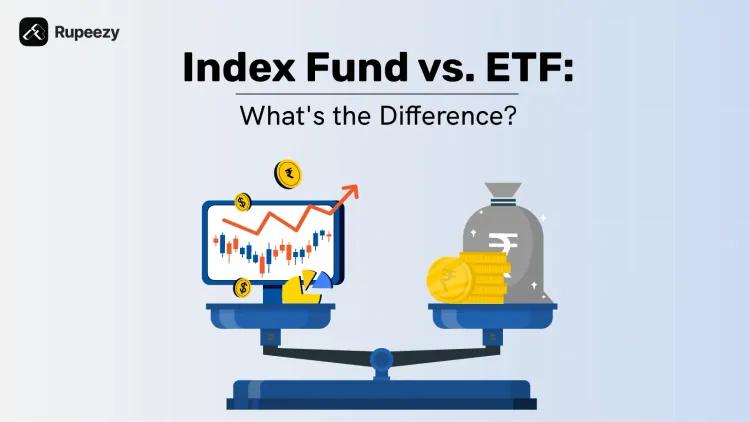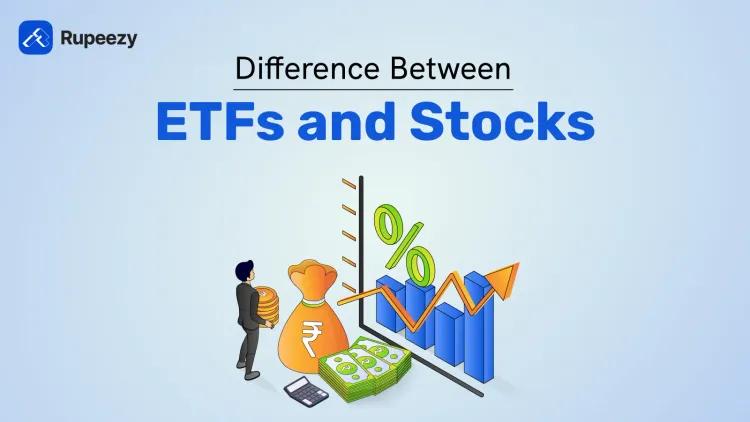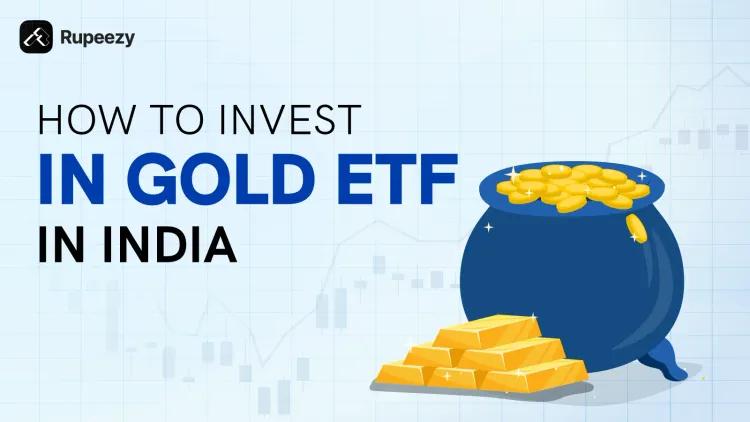Best Small Cap ETF in India to Invest 2026


00:00 / 00:00
Proper investment choice is critical to have an efficient investment journey. But the question is, which tool is right for you? Should you choose fixed deposits, mutual funds, exchange-traded funds (ETFs), or other options? There is no doubt that there are many choices, but only a few stand out. Even though considered risky, the Small Cap ETFs offer better returns.
These funds offer a unique opportunity to tap into the growth potential of India's dynamic and rapidly evolving small-cap market segment. The best Small Cap ETFs in India are a great choice for investors looking to diversify their portfolio with the potential for substantial returns.
So, let us find out more about these small-cap ETFs here. Also, let us find the best Small Cap ETF to invest in 2026 India.
What are Small Cap ETFs?
To understand the Small Cap ETFs, you first need to understand the two terms used in it. The definitions for both are as follows:
Small Cap
It refers to companies with a companies with smaller market capitalizations, that are publicly traded in a stock exchange. These companies are often agile but carry higher risk and volatility than larger firms. Such companies offer the potential for high returns, making them suitable for risk-tolerant investors seeking substantial growth opportunities in the Indian market.
ETFs
ETFs refer to Exchange-Traded Funds. These funds track an index, commodity, bonds, or a mix of investment types. It's similar to a regular mutual fund but with a key difference: ETFs are traded on stock exchanges like individual stocks. This means they can be bought and sold throughout the trading day at market prices.
ETFs are popular because they offer diversification your investment is spread across the various assets the ETF holds, reducing risk. They're suitable for many types of investors, whether you're looking to invest in specific industries or seeking broad market exposure. ETFs are a flexible, accessible, and often efficient way to invest.
Small Cap ETFs
Based on this, the Small Cap ETFs are the funds that track indices comprising of companies with comparatively small market capitalization. These funds are passively managed by fund managers by investing in the same stocks in the same proportion they have in the index. The typical features of the best Small Cap ETFs India are as follows:
Small Cap ETFs invest in a broad range of small-cap stocks across various industries and sectors.
They try to mimic a particular index.
The companies offer higher growth potential compared to larger companies.
These are quite liquid in nature, which allows for easy trading on the stock exchange.
The total expense ratio is lower than that of mutual funds.
The holdings are disclosed regularly, offering transparency.
Now that you know the features of a good small-cap ETF, let us explore the top options you can invest in today!
List of the Best Small Cap ETF in India
Investors looking for the best Small Cap ETF India for long-term must consider both risk and return. Based on this, the top options are listed as below:
Fund Name | Inception Date | Return Since Inception (%) |
HDFC NIFTY Smallcap 250 ETF | 15-Feb-2023 | 54.34 |
Mirae Asset Nifty Smallcap 250 Momentum Quality 100 ETF | 23-Feb-2024 | 16.62 |
Motilal Oswal Nifty Smallcap 250 ETF | 15-March-2024 | 8.21 |
Mirae Asset Nifty MidSmallcap400 Momentum Quality 100 ETF Fund of Fund | 31-May-2024 | 12.74 |
Detailed Overview of Best Small Cap ETF India
The details of the best Small Cap ETFs in India are as follows:
1. HDFC NIFTY Smallcap 250 ETF
This ETF tracks the NIFTY Smallcap 250 Index (TRI). This index invests in small cap companies based on capitalization and ranking of 251-500 based on the market capitalization from the NIFTY500. By diversifying the exposure in India’s small cap segment, this ETF offers an effective way to earn index-linked returns and generate wealth.
AUM (Fund Size): Rs.773.02 Cr
Benchmark: NIFTY Smallcap 250 Index (TRI)
Risk: Very High
Returns Since Inception (%): 54.34%
2. Mirae Asset Nifty Smallcap 250 Momentum Quality 100 ETF
This open-ended scheme tracks the performance of the Nifty Smallcap 250 Momentum Quality 100 TRI. It mainly involves small-cap companies at the relatively early stages for greater opportunities. The stocks in this index are selected based on their momentum and various quality factors.
AUM (Fund Size): Rs.424.01 Cr
Benchmark: Nifty Smallcap 250 Momentum Quality 100 TRI
Risk: Very High
Returns Since Inception (%): 17.95%
3. Motilal Oswal Nifty Smallcap 250 ETF
This fund aims to track the investment performance of the Nifty Smallcap 250 Index and provide returns that, before expenses, correspond to the total returns of the securities represented by the Nifty Smallcap 250. This ETF allocation includes around 95-100% investment in the index and 0-5% in the liquid schemes and money market instruments.
AUM (Fund Size): Rs.90.80 Cr
Benchmark: Nifty Smallcap 250 TRI
Risk: Very High
Returns Since Inception (%): 23.77%
4. Mirae Asset Nifty MidSmallcap400 Momentum Quality 100 ETF
This is one of the best Small Cap ETF in India for the long-term. This ETF follows the performance of the Nifty MidSmallcap400 Momentum Quality 100 TRI. The fund considers the small and mid-cap segments based on performance and momentum.
AUM (Fund Size): Rs.299.23 Cr
Benchmark: Nifty MidSmallcap400 Momentum Quality 100 TRI
Risk: Very High
Returns Since Inception (%): 12.74%
Benefits of Small Cap ETFs
When you invest in the best Small Cap ETFs in India, you get multiple benefits. Starting from diversification to gaining better returns, the list is long. The primary ones to know are as follows:
1. High Growth Potential
When it comes to growth, small-cap companies offer a higher potential as compared to large-cap companies. This is because of their ability to expand rapidly and innovate. Hence, investing in the Small Cap ETFs allows you to experience growth and gain higher-yielding returns.
2. Broad Diversification
When you go with the ETFs, you gain the benefit of diversification. Exposure to multiple small cap companies allows you to diversify the risk and gain an opportunity to have better returns.
3. Cost Efficiency
Small Cap ETFs offer a cost-effective way to invest in many stocks without the need to manage multiple transactions and incur associated trading fees. This makes it easier and less expensive to build a diverse portfolio.
4. Accessible Liquidity
These are traded on stock exchanges like NSE and BSE. This makes it easier for the investors to buy and sell them, which offers a higher degree of liquidity. This allows you to easily enter or exit positions with minimal impact on the market price.
5. Expert Management
The best part of investing in the Small Cap ETFs is their management. These funds are managed by experts who carry years of experience and are capable enough to make changes as and when needed.
6. Transparent Investment
Small Cap ETFs provide clear visibility into their holdings. This ensures that all the investors are updated regularly. This level of transparency ensures you always know where your money is invested.
How to Choose the Right ETF
There are so many ETFs in the market. Hence, it is important to select the best Small Cap ETFs in India. Here are the main factors to consider:
1. Fund Performance
This will give you an idea of how the fund has worked historically in various market situations and a brief view of its returns compared to its peers and benchmark indices.
2. Fund Size
Understand the value of assets under management (AUM) of the ETF. The ETFs with large amounts of money invested are considered to be stable. This makes it a better selection for investors.
3. Portfolio Diversification
Understand the sector and companies in which ETF invests. This will give you an idea of the diversification. Also, an ETF investing in a broad category of sectors reduces the overall risks. Hence, ensure that a well-diversified ETF fund is selected.
4. Tracking Error
This is the variation of the ETF’s performance from its benchmark index. A lower tracking error indicates that the ETF closely follows its benchmark, which is generally desirable.
7. Expense Ratio
This is the annual fee for the fund management. This includes management fees, administrative fees, and other operational expenses. The expense ratio is deducted from the fund's assets and can affect the overall returns for investors.
In general, a lower ratio can lead to comparatively higher returns. This is because when the expense ratio is low, less amount is taken out of the funds as fees, thereby leaving more of your investment to grow. Hence, if you are planning a long-term investment, do check this.
Risks Involved in ETFs
There are a few risks linked to the small cap ETFs. Here are the common ones:
Market Volatility: These invest in small cap stocks, which are more volatile. This leads to substantial price swings.
Liquidity Risk: Small Cap stocks may be less liquid, potentially affecting the ETF’s ability to execute large trades without impacting the market price.
Economic Sensitivity: Small-cap companies are often more vulnerable to economic downturns, negatively impacting their performance.
Limited Resources: These companies have fewer resources, which can hinder their operational capabilities and growth potential.
Regulatory and Political Risks: Small-cap companies can be more susceptible to adverse effects from regulatory or political changes.
How to Invest in ETFs?
Investing in the small-cap ETFs is straightforward. The steps you must follow to invest in ETFs are as follows:
Step 1: Open a Demat Account
To start investing in the Small Cap ETFs, you must open a demat account first. Visit Rupeezy to open an account online. For account, submit all the KYC documents as needed and complete the verification process. Once approved, your account will open.
Step 2: Check all ETF Options
Next is to look for the ETF options. You must consider your goal to evaluate each of the ETFs. Ensure that the risk and return capacity are compared. Using this, you can make the right decision to invest.
Step 3: Select and Plan Your Investment
To select the right Small Cap ETF for your investment needs, consider factors like the fund’s performance history, expense ratio, and the sectors it covers. Once you've chosen the ETF, decide how much you want to invest and plan your investment strategy, whether a lump sum or a systematic investment plan (SIP).
Step 4: Make Your Payment
Once you are done with your selection and the nature of the investment, it's time to make the first payment. Buy the ETF by transferring the fund. You will be able to see the allotment in your account now.
Step 5: Monitor and Rebalance
If you wish to grow your funds exponentially, it is important to keep track of the progress. Monitor the market conditions. See if fund performance is in sync with your overall goal or not. If you find any deviation, consider rebalancing your portfolio.
Step 6: Review and Adjust Periodically
Review the performance of your Small Cap ETF against benchmark indices and peer funds. This will help you understand if your investment is performing as expected. Adjust your strategy as needed. This will help to optimise returns and manage risk effectively.
Tax Implications of ETFs
The taxation on the ETFs that you must know while investing are as follows:
Type of ETF | Short-Term Capital Gains (STCG) | Long-Term Capital Gains (LTCG) |
Equity ETFs | 20% (Taxed under section 111A) | 12.5% (without indexation) |
Gold ETFs | Taxed as per income tax slab rate (assets sold within 3 years) | 12.5% (without indexation) |
Debt ETFs | Taxed as per income tax slab rate (assets sold within 3 years) | Taxed as per income tax slab rate |
Other Non-Equity ETFs | Taxed as per income tax slab rate (assets sold within 3 years) | 12.5% (without indexation) |
Conclusion
Knowing the details of the Small Cap ETFs is quite important for investors. Right from identifying the right option to selecting the right fund, there are multiple things to know. But if you are a beginner looking to invest in the best Small Cap ETFs in India, consider all these factors properly.
If you are looking for the best platform to invest, visit Rupeezy today. Easily compare all the options and make the right investing decision to gain long-term benefits.
Check Out These Related Articles |

All Category










